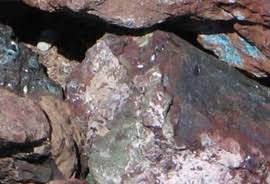
As the Democratic Republic of Congo draws the interest of battery makers for electric vehicles in terms of cobalt that is produces – despite it being costlier but is less risky, Australia is witnessing a renewed interest in its cobalt projects which are likely to start production years from now. Australia has the second largest cobalt reserves in the world.
There has been a three-fold enhancement in the share prices of Clean TeQ this year because of the rise in the number of auto companies seeking to develop electric cars. Clean TeQ owns the biggest cobalt deposits in Australia. The share prices of smaller companies such as Cobalt Blue, Australian Mines, Artemis Resources and Aeon Metals have also risen.
Institutional investors poured in about A$30 million ($23 million) in Aeon on Friday. The company is in the process of developing a copper-cobalt mining project in Queensland.
In a recent report, Amnesty International claimed that women and children were engaged under dangerous conditions for mining of cobalt by DRC and about one fifth of the company’s product is mined under such conditions. however, despite that report, there has been an interest of investors in the company. Ethical standards in the purchasing of cobalt and other materials required for EVs was promised to be maintained by auto giants such Toyota and Volkswagen last month.
“We have 10 (battery making) firms in discussions,” said Australian Mines Managing Director Benjamin Bell. He cited talks at advanced stages for ensuring offtake from the Queensland Sconi project of the company with companies from Germany, Japan, China and South Korea. After 2019, when production is expected to begin, about 2,500 tonnes of cobalt and 17,500 tonnes of nickel are expected to be mined out annually from the Sconi project.
“The reason they are contact with us is they can see that cobalt out of the DRC is probably not going to be acceptable for their users over time,” Bell said.
There is about 15 per cent the global reserves or about 1.1 million tonnes of cobalt in Australia. The metal is produced as a by-product of copper and nickel. According to the U.S. Geological Survey, that volume is about five fold of what Canada has but is less than a third of the DRC’s reserves.
“To be honest, costs in Australia are much higher than DRC, but half our revenue is cobalt and half nickel. The battery makers are talking to us saying that they would take both,” Bell said.
With a present market capitalization of A$832 million, Clean TeQ had initially begun its journey as a firm engaged in water treatment technology and later got hold of a cobalt-nickel-scandium deposit in 2014.
“We are talking to many people regarding offtake and the discussions are ongoing,” a spokesman said.
(Source:www.reuters.com)
There has been a three-fold enhancement in the share prices of Clean TeQ this year because of the rise in the number of auto companies seeking to develop electric cars. Clean TeQ owns the biggest cobalt deposits in Australia. The share prices of smaller companies such as Cobalt Blue, Australian Mines, Artemis Resources and Aeon Metals have also risen.
Institutional investors poured in about A$30 million ($23 million) in Aeon on Friday. The company is in the process of developing a copper-cobalt mining project in Queensland.
In a recent report, Amnesty International claimed that women and children were engaged under dangerous conditions for mining of cobalt by DRC and about one fifth of the company’s product is mined under such conditions. however, despite that report, there has been an interest of investors in the company. Ethical standards in the purchasing of cobalt and other materials required for EVs was promised to be maintained by auto giants such Toyota and Volkswagen last month.
“We have 10 (battery making) firms in discussions,” said Australian Mines Managing Director Benjamin Bell. He cited talks at advanced stages for ensuring offtake from the Queensland Sconi project of the company with companies from Germany, Japan, China and South Korea. After 2019, when production is expected to begin, about 2,500 tonnes of cobalt and 17,500 tonnes of nickel are expected to be mined out annually from the Sconi project.
“The reason they are contact with us is they can see that cobalt out of the DRC is probably not going to be acceptable for their users over time,” Bell said.
There is about 15 per cent the global reserves or about 1.1 million tonnes of cobalt in Australia. The metal is produced as a by-product of copper and nickel. According to the U.S. Geological Survey, that volume is about five fold of what Canada has but is less than a third of the DRC’s reserves.
“To be honest, costs in Australia are much higher than DRC, but half our revenue is cobalt and half nickel. The battery makers are talking to us saying that they would take both,” Bell said.
With a present market capitalization of A$832 million, Clean TeQ had initially begun its journey as a firm engaged in water treatment technology and later got hold of a cobalt-nickel-scandium deposit in 2014.
“We are talking to many people regarding offtake and the discussions are ongoing,” a spokesman said.
(Source:www.reuters.com)














